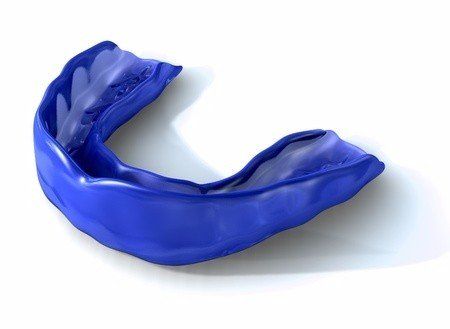Are Mouth Guards Necessary for Sleep Apnea?
Sleep apnea is a common disorder that
obstructs breathing while a person sleeps, causing shallow breathing or one or
more pauses in breathing. Breathing pauses can last from a few seconds to
minutes and may occur a few times throughout the night. Normal breathing starts
again soon after these episodes, but it may be accompanied by loud snoring or a
choking sound. While many often worry about the effects of sleep apnea on their
breathing, quality of sleep, and cardiovascular health—as they should—it’s in
their best interest to also think about the effects this condition has on their
oral health.
Dr. Reyes Enciso, an assistant professor
of clinical dentistry at the University of Southern California, said the risk
of sleep apnea increases greatly depending on age and body mass index and is
much more common in men. "As many as one out of every six people over 50
has at least mild sleep apnea," Dr. Enciso said. "And it's estimated
that almost 75 percent of severe apnea cases are undiagnosed." To
determine if someone has sleep apnea, a sleep study may be performed to monitor
sleep habits.
People who struggle with sleep apnea may
sleep with their mouth open, causing dry mouth. The mouth needs saliva to fight
off bacteria—a lack of saliva can lead to more germs in the mouth. With more
severe cases, dry mouth can even lead to tooth decay. The National Sleep
Foundation (NSF) believes sleep apnea can also lead to teeth grinding.
According to the NSF, treating sleep apnea
can help lessen nocturnal teeth grinding. The shape of the jaw and overall bite
affects one’s risk of having this condition. This is why wearing a mouth guard
may have its perks in sleep apnea cases. A mouth guard may aid with mild cases
of sleep apnea, and it’s even effective for correcting loud snoring. The mouth
guard can adjust the position of the tongue and the lower portion of the jaw.
This helps keep airways open while a person is sleeping.
Another kind of oral appliance that can
help treat sleep apnea is a mandibular advancement device. The device looks
like a mouth guard and prevents teeth grinding. Whether a mouth guard is essential
for sleep apnea depends on a condition’s severity, but even mild cases can
benefit from the increased airflow provided by the mouthpiece. Some prefer to
wear a continuous positive airway pressure device (CPAP), which has a mask that
fits over the nose and mouth and blows air to help keep airways open. To determine
which is right for you, consult with your healthcare provider or your dental
health professional.
Worried about the high costs of dental
care? Did you know you can save as much as 20 percent off your regular bills
with a New Hampshire Family Discount Dental Plan
like the Wellness Dental Plan?
For more information, click here.
Copyright: albund
/ 123RF Stock Photo











